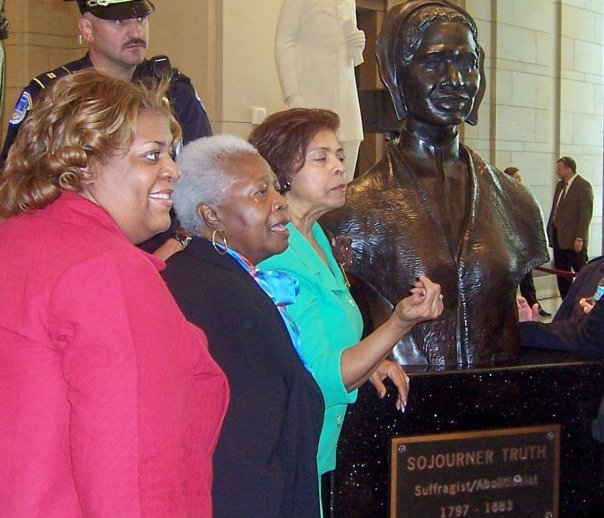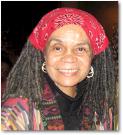Yesterday the Detroit Branch NAACP honored some civil rights giants during its annual Freedom Fund Dinner. Among the awards given were the Mary White Ovington Freedom and Justice Award given to the Rev. Al Sharpton and the Mary Church Terrell Freedom and Justice Award given to the Rev. Edwin A. Rowe, pastor of Central United Methodist Church in Detroit. I chose to highlight these two awards because they were named after female ancestors who made great contributions to the fight for human rights, particularly for blacks and women. They were founding members of the NAACP 100 years ago and were chosen to help establish this civil rights group because of work they had been doing prior to 1909. An award named after someone is definitely an appropriate way to acknowledge ancestors.
Some other proper tributes include the naming of a street, building or some other monument; the creation of art, like a sculpture, painting, poem, or documentary; and a holiday to honor that ancestor. All these ways keep their memories alive in those of us familiar with them and prompt others of us to seek information about them. As I read the newspaper about the Freedom Fund Dinner, I was able to introduce some and reinforce other present day activists to my six-year-old son, simply because the paper talked about the honors they received. From the NAACP tribute to a newspaper that highlighted their achievements, I was able to etch into my son’s mind the work of our ancestors. The preserving of memories is important, and we must give honor to whom honor is due (Romans 13:7). We just need to make sure that the honor preserves their memory and their proper place in our lives, as humans who contributed to the advancement of humanity.
Copyright 2009 by Rhonda J. Smith


